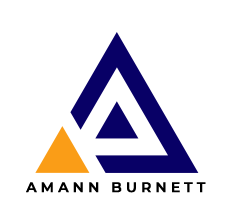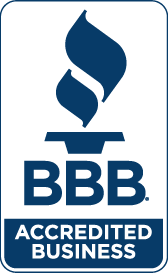The Familiar “Lodestar” Method-Automatic Stay Violation Analysis of Attorney’s Fee Awards

Pope v. U.S. Bank, et al. (In re Pope), 2023 BNH 002 (applying the lodestar method to determine plaintiff counsel’s entitlement to reasonable attorney’s fees under 11 U.S.C. § 362(k)(1) and determining that plaintiff counsel’s entitlement to attorney’s fees pursuant to § 25 of the plaintiff’s mortgage and New Hampshire state law required consideration of the same factors). On August 15, 2022, the court entered a Final Judgment (the “Final Judgment”) in favor of plaintiff, Davin Pope, on Counts I, II and III of her complaint against U.S. Bank, National Association, as Legal Trustee for Truman 2012 SC2 Title Trust (“U.S. Bank”) and Rushmore Loan Management Services, LLC (“Rushmore” and, collectively with U.S. Bank, the “Defendants”).
See prior decision regarding facts on how U.S. Bank violated the automatic stay, Pope v. U.S. Bank, Nat’l Ass’n, as Legal Title Trustee for Truman 2012 SC2 Title Trust, et al. (In re Pope), 647 B.R. 597 (Bankr. D.N.H. 2022) (determining that a mortgagee and its mortgage loan servicer (the “defendants”), were liable to the plaintiff-debtor on her claims of breach of contract, violation of the automatic stay under 11 U.S.C. § 362(k)(1) and contempt of the court’s order confirming the plaintiff-debtor’s chapter 13 plan where the defendants failed to treat the plaintiff-debtor’s mortgage loan as current and misapplied post-petition escrow payments).
When determining a fee award under a federal statute or claim, courts employ the “lodestar” method. See Berliner v. Pappalardo (In re Sullivan), 674 F.3d 65, 69 (1st Cir. 2012)
(applying lodestar method to fees sought under 11 U.S.C. § 330(a)); In re Little, 484 B.R. 506, 510 (B.A.P. 1st 2013) (lodestar is the appropriate approach in determining reasonable attorney fees under 11 U.S.C. § 330(a)); Northeast Lumber Mfrs. Ass’n v. Northern States Pallet Co., Inc., 2011 WL 320619 at *8 (D.N.H. January 31, 2011) (utilizing the lodestar method in
awarding fees under 15 U.S.C. §§ 1117(a) and (b)); Robbins v. Walter E. Jock Oil Co., Inc. (In re Robbins), 2017 WL 946282 at *3 (March 9, 2017) (using the lodestar method to analyze fee
award relating to a discharge injunction violation); In re Porter, 399 B.R. 113, 117 (Bankr. D.N.H. 2008) (applying the lodestar method to creditor’s claim for attorney fees in a
reaffirmation agreement); In re Chase, 2003 WL 22056652 at *2 (Bankr. D.N.H. August 25, 2003) (employing a lodestar analysis in a claim under 11 U.S.C. § 506(b)).
New Hampshire’s state law standard for reasonable attorney fees is similar to the lodestar method. See generally Wells Fargo Bank, National Ass’n v. Moskoff, 2021 WL 4798102, at *3
(D.N.H. Oct. 14, 2021) (noting the similarity and choosing to apply the lodestar method to an award of attorney fees claimed under a mortgage provision providing the same); In re Taal, 540 B.R. 24, 31 (Bankr. D.N.H. 2015) (same). New Hampshire courts examine fees using the eight (8) factors listed in the Code of Professional Responsibility as a guide. See Town of Barrington v. Townsend, 164 N.H. 241, 250, 55 A.3d 952 (2012) (citing, Funtown USA, Inc. v. Town of Conway, 129 N.H. 352, 356, 526 A.2d 882 (1987)). Those factors are “the amount involved, the nature, novelty, and difficulty of the litigation, the attorney’s standing and the skill employed, the time devoted, the customary fees in the area, the extent to which the attorney prevailed and the benefit thereby bestowed on his clients.” Id. All of these factors are ones a court must take under consideration in performing a lodestar analysis under federal law.
In the end, Ms. Pope was awarded $143,000 in fees and $3,600 in costs.





